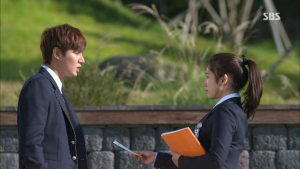
Common Korean Phrases in K-Drama
Table of Contents
The Common Korean Phrases in K-Drama, K-drama has taken the world by storm. With its engaging plots, charismatic characters, and, of course, the captivating language, Korean dramas have converted fans from all corners of the globe. As you dive deeper into the world of K-drama, you’ll find that understanding the language can enhance your viewing experience tremendously. In this article, we’ll explore some common Korean phrases used in K-drama that will leave you feeling like a true connoisseur of the genre!
The Common Korean Phrases in K-Drama:
1. Annyeonghaseyo (안녕하세요) - Hello!
One of the most fundamental Korean phrases you’ll hear in every K-drama is “Annyeonghaseyo.” It’s the standard way of saying hello in a polite manner. Whether it’s an intense conversation or a light-hearted encounter, you can bet that characters greet each other with this iconic phrase.
Usage in K-Drama:
Imagine a scene where the main character unexpectedly meets their crush. The tension is palpable, and just before the heart-fluttering moment, one of them says, “Annyeonghaseyo!” This phrase sets the tone and warms up the atmosphere, making it a classic K-drama moment.
2. Saranghae (사랑해) - I Love You
Nothing tugs at our heartstrings quite like love confessions in K-drama! “Saranghae” translates to “I love you,” and it is often used during pivotal moments in the storyline. Whether it’s a passionate declaration or a quiet confession, this phrase is a staple in any romantic K-drama.
Usage in K-Drama:
Picture a rainy day, a dramatic backdrop, and two characters standing close. One leans in, eyes filled with emotion, and softly utters, “Saranghae.” The audience collectively gasps as the tension reaches its peak. It’s moments like these that make K-drama fans swoon!
3. Jal Meokkesseumnida (잘 먹겠습니다) - I Will Eat Well
Food is an essential part of Korean culture, and K-dramas often showcase delicious traditional dishes. Before diving into a meal, characters often say “Jal Meokkesseumnida,” which means “I will eat well.” This phrase not only expresses gratitude but also sets the stage for the delightful culinary experiences that follow.
Usage in K-Drama:
Imagine a family gathering where everyone is seated around a table filled with mouth-watering dishes. The eldest member raises their chopsticks and declares, “Jal Meokkesseumnida!” The scene captures the warmth of familial love, and viewers can almost taste the food through the screen.
4. Gwaenchanha (괜찮아) - It's Okay / I'm Fine
Life in K-dramas is often filled with ups and downs, and characters frequently reassure each other with “Gwaenchanha,” meaning “It’s okay” or “I’m fine.” This phrase can be comforting and soothing, especially during moments of vulnerability and emotional turmoil.
Usage in K-Drama:
In a heart-wrenching scene where a character is struggling with personal issues, their best friend might place a reassuring hand on their shoulder and say, “Gwaenchanha.” This simple phrase provides emotional support, fostering the connection between characters that K-drama fans cherish.
5. Jinjja (진짜) - Really?
“Jinjja” means “really?” and is a versatile phrase used frequently in K-dramas, often to express disbelief or surprise. This phrase can be employed with varying tones depending on the context, making it a favorite among fans.
Usage in K-Drama:
Imagine a dramatic plot twist, and one character turns to another with wide eyes and says, “Jinjja?” The suspense and excitement in that moment create an unforgettable scene that keeps viewers at the edge of their seats.
6. Eotteoke (어떻게) - What Should I Do?
In moments of dilemma or confusion, characters often express their feelings with the phrase “Eotteoke,” which translates to “What should I do?” This phrase encapsulates the character’s turmoil and engages the audience as they root for them to find a solution.
Usage in K-Drama:
Visualize a character standing at a crossroads in their life, overwhelmed by choices. They might exclaim, “Eotteoke?!” This phrase resonates with viewers, reminding them of their struggles, making it a relatable and powerful moment.
7. Chingu (친구) - Friend
Friendship is a central theme in many K-dramas, and characters often refer to each other as “Chingu,” meaning “friend.” This term highlights the bonds formed throughout the narrative and emphasizes the importance of companionship.
Usage in K-Drama:
During a light-hearted scene filled with laughter, one character might call out to another, “Chingu!” This playful exchange adds to the camaraderie, showcasing the warmth and joy that friendship brings to the storyline.
8. Bogo Shipda (보고 싶다) - I Miss You
As K-dramas often depict heart-wrenching separations, the phrase “Bogo Shipda,” which means “I miss you,” becomes a pivotal expression of longing. It evokes powerful emotions, connecting viewers to the characters’ heartfelt experiences.
Usage in K-Drama:
Picture a scene where two lovers are separated due to circumstances beyond their control. One character gazes at a photograph and whispers, “Bogo Shipda.” This moment encapsulates the essence of love and longing, leaving viewers with a sense of empathy.
9. Nae Sarang (내 사랑) - My Love
Used in romantic contexts, “Nae Sarang” translates to “my love.” This phrase is often used by characters to express deep affection for their romantic partners, making it a sweet addition to any love story.
Usage in K-Drama:
Imagine a scene with a candlelit dinner, where one character lovingly looks into their partner’s eyes and says, “Nae Sarang.” This expression of love creates an intimate atmosphere that resonates with viewers, capturing the magic of romance.
10. Hwaiting (화이팅) - You Can Do It!
One of the most motivating phrases you’ll hear in K-dramas is “Hwaiting!” It’s an encouraging term used to uplift and cheer someone on, often in moments of challenge or adversity.
Usage in K-Drama:
During an intense competition or a tough situation, friends or family might rally around a character, chanting “Hwaiting!” This phrase instills a sense of hope and camaraderie, encouraging audiences to believe in their own dreams.
Frequently Asked Questions about Common Korean Phrases in K-Drama
What’s the most popular phrase to declare love in K-Dramas?
Ah, the classic “Saranghae” (사랑해)! It’s the go-to phrase for professing love, whether you’re confessing your feelings or trying to win over the heart of your crush. For a more formal touch, you can sprinkle in “Saranghaeyo” (사랑해요). Either way, be prepared for a dramatic response!
How do I say "I miss you" like a true K-Drama fan?
You’ll want to use “Bogoshipo” (보고싶어). A phrase that’s sure to pull at the heartstrings, perfect for those teary-eyed moments in your favorite drama. Just don’t forget to dramatically stare into the distance afterwards!
Is there a phrase for answering the phone that I should know?
Absolutely! When you pick up the phone, you can greet the caller with “Yeoboseyo” (여보세요). It’s your way of saying “hello” and sounds super cool, just like your favorite K-Drama characters!
What’s a cute way to refer to my mom in Korean?
The informal term “Eomma” (엄마) is your best bet! It’s sweet and endearing, just like the warm hugs you’d expect from a mother in a K-Drama.
What do I call my dad when I want to sound all dramatic?
For that classic touch, “Appa” (아빠) is the term you’re looking for. Use it during emotional family scenes for maximum impact!
How do K-Drama characters say "friend"?
You’ll want to throw around “Chingu” (친구) to refer to your pals. Use it casually, and you’ll be the trendiest K-Drama fan in your group!
What’s the best phrase for when I want to say "I like you"?
The phrase “Joh-ahae” (좋아해) works wonders here! Whether you’re trying to compliment someone or diving into a love confession, this phrase fits right in with the romantic vibes of K-Dramas.
Can you give me a phrase that expresses disbelief or surprise?
For those jaw-dropping moments, try using “Chincha?” (진짜?). It translates to “Really?” and is perfect for those times when you can’t believe what you just heard!
What’s a common expression for when I want to encourage someone?
“Hwaiting!” (화이팅) is your cheerleading phrase! It’s like saying “You can do it!” with all the enthusiasm of a K-Drama best friend, ready to back you up in any challenge.
How do I convey my excitement in a K-Drama way?
Use “Daebak!” (대박) when something amazing happens! It’s the ultimate exclamation of excitement and is sure to make you feel like you’re living in your own K-Drama adventure.
Video - Common Korean Phrases in K-Drama
The Common Korean Phrases in K-Drama, K-dramas are not just about the storylines; they are about the connections, emotions, and language that make them special. By learning these common Korean phrases, you can immerse yourself deeper into the world of K-drama. Each phrase carries a weight of emotion, making them memorable and impactful. So, the next time you watch your favorite K-drama, pay attention to these phrases, and perhaps even try using them in your own conversations!
Whether you’re a seasoned K-drama fan or just starting your journey, these phrases are sure to enhance your experience and bring you closer to the heart of Korean culture. So grab some popcorn, cozy up with your favorite series, and let the magic of K-drama sweep you away!
Did you like this article about Common Korean Phrases in K-Drama? You might be interested in seeing more related articles here: Korean Language
